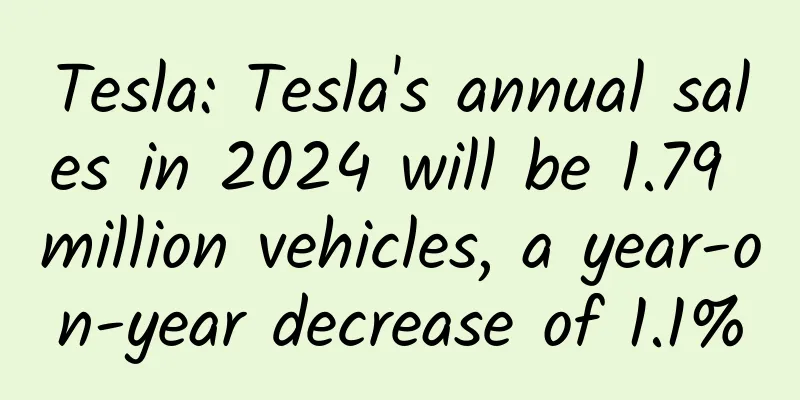The big screen is not the goal but a means. Where is the smart car heading?

|
The automotive industry, which has a history of more than a hundred years, will need to become intelligent in the next step. This year, technology giants Apple and Google have simultaneously targeted wheeled technology, launching the Car Play in-car system and the Open Automotive Alliance. For most car manufacturers, adding a screen to the car like the iPhone or Android smartphone seems to be a step forward in making the car smarter. But not long ago, according to survey data from Harris Poll, an online survey organization, only 14% of people in the United States, where the global technology industry is developed, know about smart cars. In addition, as many as 44% of people have never heard of smart cars, and another 42% of people are not clear about what smart cars can do. It seems that the effect of this screen has not met expectations. In fact, the so-called "smart cars" nowadays are mainly doing two things. First, it acts as a "translator" between people and cars, using the data generated by various sensors, controllers, actuators and other devices in the car to compare and translate some professional terms into words that ordinary people can understand. Simply put, a "smart car" will not simply tell you that the fuel level has reached a certain warning line or that the tire life has exceeded the mileage. Instead, it will directly help you find a gas station on the road or help you plan a maintenance plan for your car on a certain day. Now some seemingly high-tech "car box" products are actually doing this. The second is to build a "bond" for information transmission between the car and the outside world, which includes the two meanings of entertainment socialization and functionality. It is just like buying a smartphone means you must play games and chat on WeChat. Enhancing the entertainment and social experience is the most direct demand of users for smart cars. After becoming intelligent, most cars will have mobile data connection functions such as Wi-Fi, and the on-board screen will also display more information. This also promotes the popularization of human-computer interaction forms such as voice control in the automotive field. Functionalization is closely related to the most basic function of a car, which is driving and transportation. Navigation, which is indispensable for modern cars, is one aspect of intelligence. Through the on-board system and external information terminals, information can be exchanged between people and cars, cars and cars, cars and roads, etc., so that the car has the ability to perceive the environment and has its own judgment and response methods for emergency situations and route planning. In the future, the self-driving cars we envision will also start from this. Of course, in addition to this, more importantly, the realization of automotive intelligence is not something that can be accomplished solely by relying on the car itself. In other words, in the context of intelligence, cars, which have always been "big items" in the eyes of Chinese people, have a similar status to smartphones and smart watches. They just play a different role, have higher value, and have different usage scenarios. However, only when they are seamlessly connected with other smart products can such an intelligent transformation be meaningful. Therefore, it is nothing to be surprised that more than 40% of Americans have never heard of smart cars, and it is not worth making a fuss about that more than 90% of Americans do not understand smart cars. On the contrary, this may be the brilliance of the American technological society. The ultimate meaning of the word "smart" is to allow users to enjoy it invisibly. The future of smart cars is to become a part of smart life, rather than intelligence becoming a component of cars. If intelligence is still just a selling point for most car manufacturers, adding screens and Wi-Fi to cars are just gimmicks to attract attention. Even if Tesla puts such a large screen in the car, if it doesn’t do the most basic navigation and map functions well, it is just a variant of a physical button control panel. What’s the point of surfing the Internet and entertaining in the car? From this perspective, it doesn’t matter whether you understand smart cars or not. As a winner of Toutiao's Qingyun Plan and Baijiahao's Bai+ Plan, the 2019 Baidu Digital Author of the Year, the Baijiahao's Most Popular Author in the Technology Field, the 2019 Sogou Technology and Culture Author, and the 2021 Baijiahao Quarterly Influential Creator, he has won many awards, including the 2013 Sohu Best Industry Media Person, the 2015 China New Media Entrepreneurship Competition Beijing Third Place, the 2015 Guangmang Experience Award, the 2015 China New Media Entrepreneurship Competition Finals Third Place, and the 2018 Baidu Dynamic Annual Powerful Celebrity. |
<<: Artificial intelligence is the looming demon
>>: Xiaomi deserves a valuation of more than $40 billion
Recommend
[Kinetic Taping Technology] Kinesiology Taping Video
[Kinetic Taping Technology] Introduction to Kines...
5,000 years ago, there were three-story buildings here!
About 5,000 years ago, the middle reaches of the ...
A celebrity’s million-dollar NFT was stolen. Is it true that even the most powerful encryption can’t withstand social engineering?
On April 2, Jay Chou posted on Instagram that his...
Zero-starting teaching: APP first release skills + omni-channel
It is not easy to make a good product APP, but it...
Why is it said that "a history of Henan is half of the history of China"? Because archaeological discoveries here are "Taizhong"!
In the Chinese civilization origin exploration pr...
Seven white marble columns from the Old Summer Palace return home! Is white marble "jade"?
On October 13, the State Administration of Cultur...
"Variants that need attention"! Here's what you need to know about the new coronavirus JN.1 variant
1. What is the JN.1 variant? JN.1 is the second-g...
Air conditioning was invented to "save you"? Wrong! The truth is...
In the hot summer, air conditioners have become a...
Artificial intelligence is on the rise, and high-end talents are in high demand
On May 3, in order to poach artificial intelligen...
WeChat Pay responds to new payment code regulations: currently in normal use
This evening, the official account "WeChat P...
Analysis of 5 aspects: pain points and opportunities in mutual finance operations
There don't seem to be many articles on Inter...
Samsung S5's powerful fingerprint function sharing
Samsung's new flagship GALAXY S5 has brought g...
Independent live streaming platforms have reached a turning point: Either they stand with the giants or they fall with the wind
"The situation is much worse than you said.&...
A fatal obstacle! Don’t delay if the elderly or children have these symptoms!
Audit expert: Qu Bo Chief Physician of General Su...
Event planning and promotion: a universal event planning solution!
There is actually no shortcut to planning an even...









